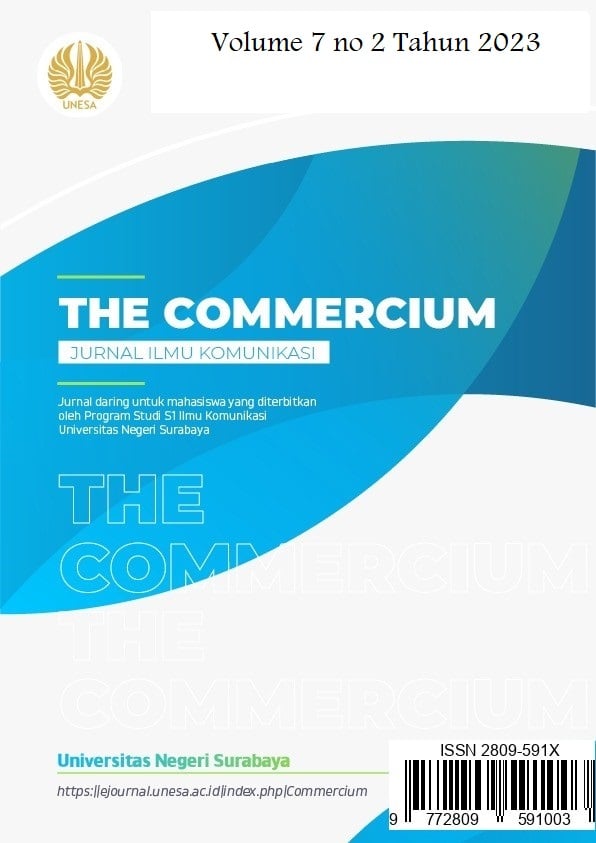PERILAKU KONSUMTIF MASYARAKAT URBAN DALAM FENOMENA JASTIP (Studi Fenomenologi Pelanggan Perempuan Pada Layanan Jasa Titip Produk Fast Fashion)
DOI:
https://doi.org/10.26740/tc.v7i2.56355Keywords:
Consumptive Behaviour, Urban Society, Delivery Service, Fast FashionAbstract
Social media has become one of the people's escapes to overcome the level of saturation caused
by the covid 19 pandemic. This moment has given birth to many new public figures or influencers to
persuade the public with content that can influence consumptive behavior and lifestyle. This lifestyle
change is supported by the convenience of increasingly sophisticated technology such as online
shopping platforms (e-commerce) and the presence of delivery services that are widely found on social
media. The ease of shopping through delivery services makes people compete to look more fashionable.
This is one of the causes of the high consumer interest in entrustment services for fast fashion products.
This research aims to find out about the phenomenon of entrustment services 'jastip' for fast fashion
brands as a form of consumptive culture from urban society. For this reason, this research uses a
descriptive qualitative approach with phenomenological methods. Data collection method by
interviewing 7 informants who are consumers of entrustment services on fast fashion products. Based
on the results of the interview, this phenomenon is caused by technological developments that affect
the lifestyle of urban communities as well as the post-pandemic economic improvement that supports
consumptive culture.
Downloads
Downloads
Published
How to Cite
Issue
Section
 Abstract views: 268
,
Abstract views: 268
, PDF Downloads: 980
PDF Downloads: 980

